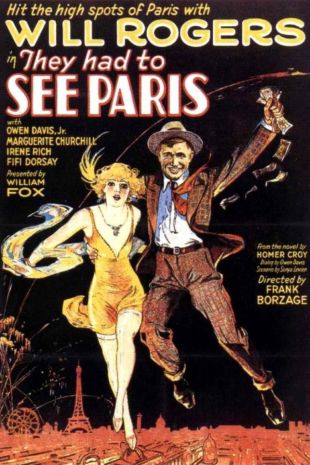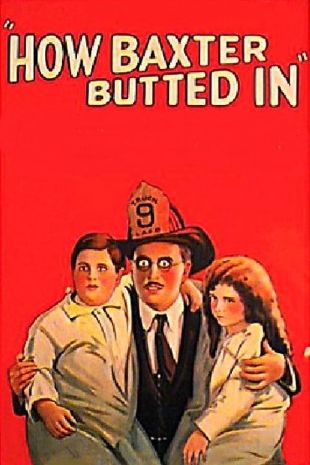At various points across the first half of the twentieth century, Owen Davis was recognized in print as America's "most produced" playwright. That reference carried more of a distinctly two-edged meaning than would seem to be the case at first glance. Davis was massively successful at authoring plays (as many as 200 of them) that were popular entertainment but not highly regarded on a dramatic or literary level; indeed, he was derisively referred to in at least one article of his time as a master "melodramatist," rather than dramatist. But in later years, after the teens, he slowed his output and began writing on a more sophisticated level and, in the process, also became a screenwriter in Hollywood, as well as seeing many of his plays (most notably Jezebel) brought to the big screen.
Davis was born in Portland, ME, in 1874, and seems to have written his first play at the age of nine -- Diamond Cut Diamond or, The Rival Detectives, in five acts with 11 characters, all but two of whom were dead by Act V. His professional writing career began in the 1890s with Through the Breakers, a melodramatic thriller that set the pattern for much of his mass-produced work that followed over the ensuing 25 years. His early plays, of which there were dozens upon dozens, usually involved beautiful heroines, poor-but-honest heroes, a villain, a comic relief character, a soubrette, and perhaps a villainess, and their conclusions were described by critics as not so much inevitable as predictable. The public in those years outside of the big cities ate up such conventions, in works with titles such as A Gambler's Daughter and Nellie -- The Beautiful Cloak Model, or The Great Express Robbery; Davis profited handsomely, in addition to making a name for himself across the country. He garnered little respect for his work, however, until he reduced his output and began aiming a bit higher in his writing; during the 1920s, this process culminated in 1928 with Icebound, which won the Pulitzer Prize for drama that year.
Davis' first contact with the movie business was indirect, through licensed adaptations of his plays such as Lola (1914) and The Woman Next Door (1915). But soon after that beginning, he was writing scenarios for movies. The most interesting adaptation of his work was Lazybones (1925), based on Davis' story, directed by Frank Borzage, which took the conventions of his tale and fleshed them out into full-blown characters and portrayals. His heyday, in terms of film adaptations of his plays, came at the end of the 1920s, in the late silent era and the transition period between silents and the talkies. Dozens of his plays were brought to the screen during this period of about four years, though few yielded memorable results. One exception was The Nervous Wreck, which was first turned into the stage musical Whoopee starring Eddie Cantor, and which was brought to the screen by Samuel Goldwyn (and also served as the basis for the Danny Kaye vehicle Up in Arms). Davis also began to turn up as a screenwriter at Fox Films, in association with actor/humorist Will Rogers on such pictures as They Had to See Paris (1929) (Rogers' first all-talking picture) and A Connecticut Yankee (1931). Davis' influence waned as the 1930s drew on, though he saw perhaps his greatest and most prestigious exposure in 1938 when Warner Bros. produced an adaptation of his play Jezebel as a vehicle for Bette Davis (Miriam Hopkins had played the lead in the Broadway production). Davis' stage adaptation of Richard Lockridge's detective stories, Mr. and Mrs. North, was a success as a theater piece (that starred his son, Owen Davis, Jr., who had frequently appeared in productions of his father's plays), and later came to the big screen with William Post Jr. and Gracie Allen in the title roles. Mr. and Mrs. North was also among the earliest modern theater pieces licenced for television production, initially arriving on the small screen in 1946, starring John McQuade and Maxine Stewart, with a very youthful Efrem Zimbalist, Jr. in the supporting cast. (Much more familiar, as it was done on film for television, was a later adaptation with Richard Denning and Barbara Britton, which initially aired in 1952). Davis' last major screen credit was for the play that served as one of the sources for Paramount's 1949 adaptation of The Great Gatsby, starring Alan Ladd. At the time of his death in 1956 at the age of 82, he had so long outlived his most successful years that his passing was scarcely noted by most members of the theater community and most newspapers.


